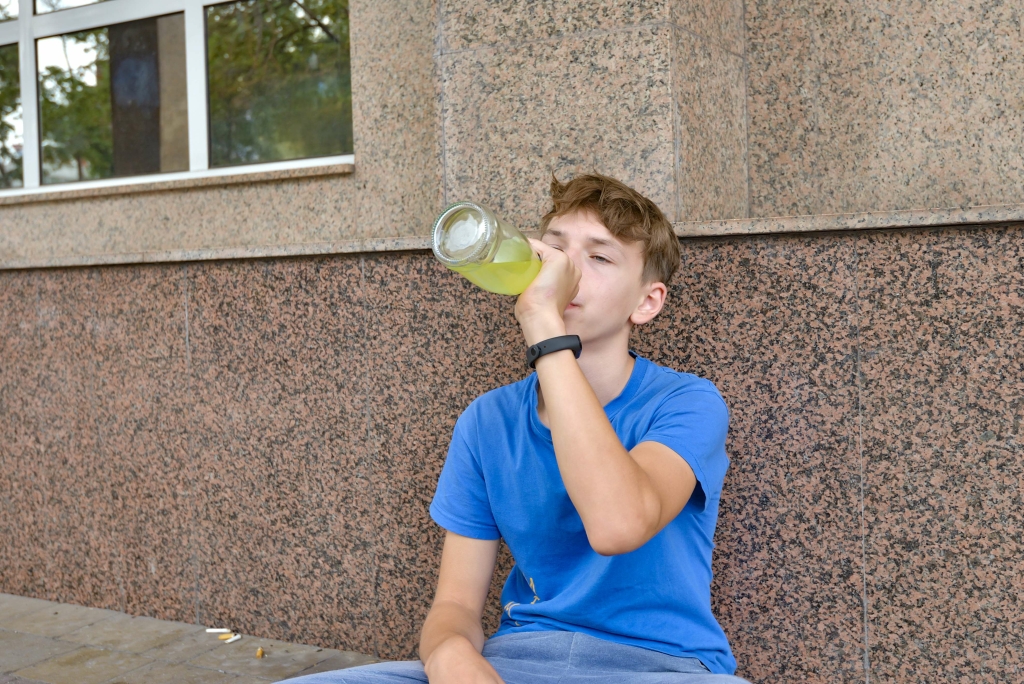Thus little data exists to either support or refute the neural mechanistic models proposed in this section. Many people live with anxiety, fear, or addiction without realizing how much it’s affecting their daily lives. Whether you’re feeling overwhelmed, unsure about your symptoms, or just looking for answers — we’re here to listen, without judgment. According to theNational Center for Complementary and Integrative Health, meditation is a mind-body activity intended to promote calm and relaxation and help people cope with illnesses and improve well-being.
- The adequacy of randomization was examined in all studies and analysis of covariance and linear mixed modeling were often used to control for any remaining pretreatment differences.
- This approach recognizes that addiction is not simply a matter of willpower or moral failing, but rather a complex interplay of various factors that contribute to its development and maintenance.
- This is indeed a challenge, as MBIs with demonstrated efficacy in Stage II trials may fail to show effectiveness in Stage III and IV trials when delivered by community clinicians.
- Furthermore, resting state functional connectivity between rACC and orbitofrontal cortex (OFC) significantly increased in the MORE group relative to the comparison group.
Clinical application of mindfulness intervention mechanisms for substance use disorder and relapse prevention

As a point of consideration, 12-Step programs encourage participation in regular meetings for the entirety of one’s life. Similarly, mindfulness might need to be practiced daily or nearly every day on an ongoing basis to achieve durable therapeutic effects and maintain addiction recovery, especially in view of the chronicity of addictive disorders. Engaging in daily mindfulness practice can offer significant advantages for individuals in recovery from substance use disorders (SUDs). Techniques such as mindful breathing, body scans, and meditation help individuals stay grounded in the present moment, increasing their self-awareness and emotional regulation. These practices can be easily integrated into daily routines, requiring no extensive equipment or professional instruction. Mindfulness practices significantly enhance cognitive functioning, particularly executive control.
- It teaches impulse control and allows individuals to set daily intentions while focusing on the present moment.
- Effective, lifelong recovery starts by treating the whole person, not just the substance use disorder.
- Similarly, in a large cluster RCT of MORE versus CBT or TAU, increases in dispositional mindfulness significantly mediated the effect of MORE on reducing craving following treatment 40.
- Mindfulness is perhaps the most popular and scientifically studied form of meditation for substance abuse recovery.
- Consider the case of a man in partial remission from alcohol use disorder who has recently stopped drinking.
- Meditation has emerged as a promising complementary therapy for the treatment of substance use disorders.
Mindfulness as a means of targeting mechanisms of addiction
Consider an individual with cocaine use disorder in full remission who practices mindful savoring when his grandchildren visit on the weekend. By using mindfulness to focus on the positive emotions and the sense of meaningfulness that emerge from spending time with his grandchildren, this individual may feel more satisfied and contented than he ever did when using substances. Consistent with the reward restructuring hypothesis, by practicing mindful savoring over time, the experience of natural reward may outweigh the drive to use drugs to obtain a sense of well-being – fortifying the individual against relapse. Given that SUDs are chronically-relapsing conditions,50,58 any intervention for substance use should acknowledge the risk of relapse and take steps for prevention.
Breath Awareness Meditation
Dose–response curves can help to identify the dose needed to achieve a satisfactory clinical outcome while minimizing the side-effect profile of the drug. Although MBIs delivered in clinical settings appear to have https://ecosoberhouse.com/ few adverse effects 79, the costs and time required to deliver complex behavioral treatments like MBIs necessitate dose–response considerations to identify the minimal therapeutic dose. Null effects of MBIs observed in Stage II or III clinical trials might very well be qualified by extent of mindfulness practice, and thus mindfulness practice engagement should be tested as a treatment outcome moderator.
- Though various conceptual models have been advanced 22, 23, 73, few tests of these specific neural hypotheses have been conducted.
- Many of these therapies actually include mindfulness (a form of meditation) as part of their therapy process or treatment plan.
- Meditation can be a go-to practice in situations where stress or cravings arise, replacing the urge to turn to drugs or alcohol.
- The benefits of mindfulness extend beyond the recovery phase, with studies showing that individuals practicing mindfulness report lasting improvements in anxiety, stress management, and overall well-being.
If you or someone you love is struggling with addiction, there are many treatment programs available that incorporate meditation. They can answer your rehab-related questions and explore your treatment options to get you started on your healing journey. The positive effects of meditation on addiction recovery typically begin to show after a addiction meditation kundalini few weeks of regular practice. Research has shown that a duration of at least 20 minutes per day is recommended for optimal results. By teaching individuals to focus their attention on the present moment and accept their thoughts and feelings without judgment, meditation helps them develop a greater sense of self-awareness and emotional resilience.
Addiction Science & Clinical Practice
Similarly, mindfulness might need to be practiced on a near daily basis for many years to effectively intervene in addiction and prevent relapse. Research is needed to test the comparative effectiveness of brief versus extended MBIs and the relative cost-effectiveness of these models. Yet, the emerging global emphasis on integrative health supports a holistic approach toward wellness by providing treatment for psychiatric and SUDs in community-based medical settings.

From this perspective, MBIs can been seen as behavioral strategies for strengthening the integrity of prefrontally-mediated cognitive control networks that have become atrophied by chronic drug use and hijacked by drug-related cues and cravings during the process of addiction. As adaptive cognitive control is restored through mindfulness exercises, MBIs may increase functional connectivity between these top-down prefrontal networks and bottom-up limbic-striatal brain circuitry involved in reward processing and motivated behavior 22. Increased connectivity between top-down and bottom-up brain networks implicated in addiction (e.g., frontostriatal circuitry) may provide the physiological substrate through which mindfulness de-automatizes addictive behavior. Meditation therapy for substance abuse helps lessen cravings, ease withdrawal symptoms, and reduce the risk of relapse for those struggling with addiction. Powerful meditation benefits include increased self-control, enhanced emotional regulation, reduced amphetamine addiction treatment stress, and improved mood. Mindfulness-based interventions like Mindfulness-Based Relapse Prevention (MBRP) are being increasingly incorporated into various addiction treatment programs.